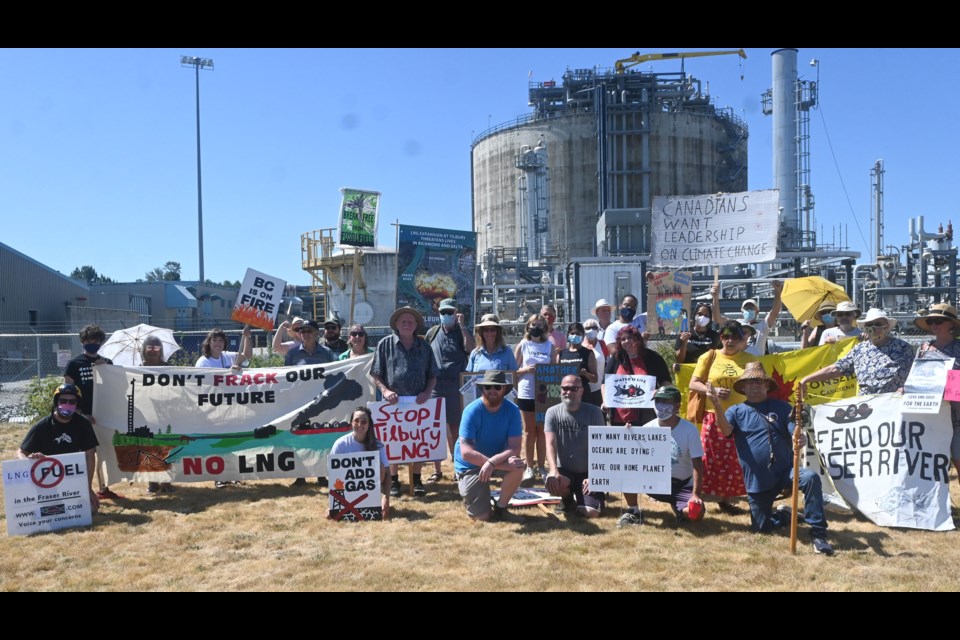Environmental groups gathered outside of FortisBC’s Tilbury facility in Delta Friday afternoon to stage a friendly protest regarding the company’s proposal to expand its site.
The Tilbury Marine Jetty Project on the Fraser River would include the berthing and transferring of liquefied natural gas (LNG) to vessels for delivery to local fuel markets and off-shore export. The supply will come via a pipeline from the existing adjacent Tilbury plant.
The project is subject to review under B.C.’s Environment Assessment Act and the requirements of the Canadian Environment Assessment Act.
The Environment Assessment Office is inviting the public to comment on the Summary Assessment Report for a 30-day period starting Aug. 5.
The protest coincided with Global Day of Action Against Fracking and LNG and was among 20 world-wide demonstrations.
“The government is having to make a decision in the fall about whether Tilbury LNG expansion can proceed to an environmental assessment. We are really hoping (B.C. Minister of Environment and Climate Change Strategy) George Heyman will see there is community opposition. That it doesn’t fit within the climate plan and he will object to it outright before it even gets to assessment,” said Peter McCartney, speaking on behalf of the Wilderness Committee that organized the Tilbury protest.
“We are also here as part of a whole global movement standing up against fracking and LNG. They know the carbon pollution from this gas is what is causing these disasters all over the world. It heartens me there is also other people here standing up to it today. The LNG that would come to this plant is entirely from fracking upstream. It’s absolutely unreal the extent people’s territories have been destroyed by this industry.”
FortisBC Vice-President of Major Projects Mike Leclair says the Tilbury expansion would also enhance LNG being used as a marine fuel which could ultimately reduce greenhouse gas emissions from ships coming into B.C. by 27 percent compared to petroleum-based marine fuels.
“As we re-think the future of energy, we want to continue to leverage the strengths of the system we are building for decades to find cost-effective ways to reduce emissions. Producing LNG for international ships could be the biggest contributors for reaching our goal of reducing customers’ greenhouse gas emissions by 30 percent by 2030,” said LeClair in a paid advertisement in the July 22nd edition of the Optimist. “We support the marine jetty moving forward so that FortisBC can produce LNG to supply the re-fuelling vessels needed to service regional and trans-Pacific ships.”



